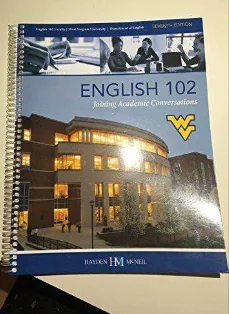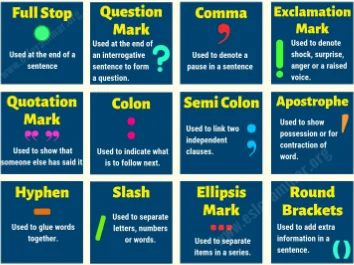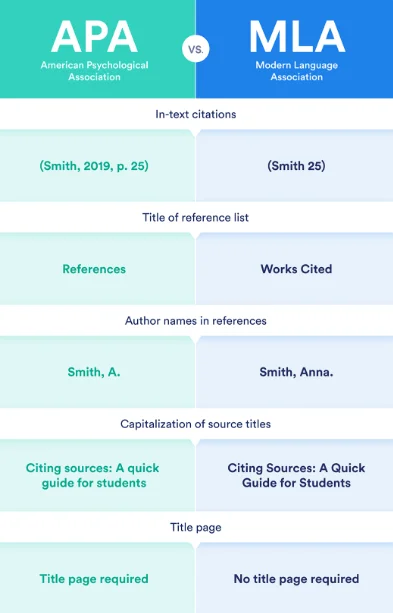Is English 102 Hard? Challenges and Myths about English 102

English 102, often perceived as a challenging course, is the next step in enhancing your writing and critical thinking skills.
This article explores the myths and challenges associated with this course. English 102 builds on the foundations of English 101, aiming to refine your abilities in research, analysis, and argumentation.
It is essential to understand what this course entails, its objectives, and who is eligible to enroll.
After debunking the myths and addressing the challenges, we can make English 102 a more approachable and successful learning journey.
Is English 102 Hard?
English 102 is relatively easy for serious students. While it requires dedication and effort, those who approach the course with commitment and a willingness to learn can navigate it successfully. Like any subject, the difficulty can vary based on individual engagement and effort.

Yes, English 102 can be challenging for those who need to prepare or put in the necessary work adequately. Like many courses, success in English 102 is closely linked to a commitment to studying, reading, writing, and engaging with the material. Preparedness and effort are vital to mastering the course.
21 Challenges and Difficulties that Make English 102 Hard
1. Time Management
Time management is a common challenge that makes English 102 difficult for many students. Balancing coursework, assignments, and research can be demanding.
Effective time management is essential to meeting deadlines, conducting thorough research, and producing well-crafted essays, a vital skill in succeeding in the course.
2. Writers Block
Writer’s block is a significant difficulty in English 102. Students often face moments when they struggle to generate ideas or articulate their thoughts effectively.
Overcoming writer’s block requires creativity and strategies to inspire the writing process, making it a crucial hurdle to conquer for success in the course.
3. Research Difficulty
Research difficulty is a notable challenge in English 102. Conducting comprehensive and credible research demands practical search skills, source evaluation, and proper citation.
Navigating the vast pool of information can be daunting, especially for those new to academic research, making it a significant hurdle in achieving success in the course.
4. Meeting Deadlines
Meeting deadlines is a prevalent difficulty in English 102. The course involves multiple assignments, essays, and research projects, each with its own timeline.
Juggling these deadlines can be overwhelming. Successful students must master time management and planning to ensure timely completion, a significant challenge in this course.
5. Feedback Interpretation
Interpreting feedback is a notable challenge in English 102. Students receive constructive criticism on their writing, which can be complex to decipher and apply effectively.
The ability to understand and implement feedback is crucial for improvement, making it a significant hurdle in the course.
6. Grammar and Punctuation
Grammar and punctuation present challenges in English 102. Precise language and proper mechanics are vital for academic writing.

Many students need help with grammar rules and punctuation usage. Mastering these elements is essential for clarity and coherence in essays, making them challenging aspects of the course.
7. Analytical Thinking
Analytical thinking can be a formidable obstacle in English 102. The course emphasizes critical analysis of texts and developing complex arguments.
For some students, honing the skills required for deep analytical thinking, including interpretation and synthesis of ideas, can be challenging, making it a significant difficulty in the course.
8. Creative Expression
Creative expression can pose difficulties in English 102. While academic writing requires structure and precision, it also calls for creative thinking to present ideas innovatively.
Balancing creativity with formal writing can be challenging, as students strive to maintain a scholarly tone while expressing their unique insights, making it a notable hurdle in the course.
9. Keeping Up with Reading
English 102 often involves a substantial amount of reading, which can be time-consuming.
Meeting the demands of reading assignments while balancing other coursework and responsibilities can prove difficult, making it a notable obstacle for students.
10. Class Participation
Active class participation can be challenging in English 102. Some students may need help with speaking up, engaging in discussions, or presenting their thoughts confidently.
Effective participation is essential for understanding and contributing to the course, making it a notable difficulty for those who find it challenging to participate in class activities.
11. Avoiding Plagiarism
Properly citing sources and providing original content while incorporating research can be complex.
Many students need help to strike the right balance between using external sources and presenting their ideas, making plagiarism prevention a notable difficulty in the course.
12. Stress and Pressure
Balancing multiple assignments, deadlines, and high expectations can lead to stress.
The course’s academic rigor and workload may create a sense of pressure, which can affect students’ overall performance and well-being, making it a significant difficulty to manage.
13. Finding a Writing Process
Discovering an effective writing process is a notable challenge in English 102. Each student’s writing approach is unique, and many need help finding the best methods.
This includes techniques for brainstorming, outlining, drafting, and revising. The search for a personalized writing process can be time-consuming and, at times, frustrating, making it a significant hurdle in the course.
14. Peer Review
Reviewing and critiquing peers’ work while providing constructive feedback requires diplomacy and objectivity.

Students might struggle to strike the right balance between offering helpful suggestions and avoiding hurtful criticism.
Managing the peer review process effectively is a notable challenge in the course, impacting both the reviewer and the writer.
15. Understanding Literary Theory
The course often delves into various literary theories and critical frameworks that can be complex and abstract.
Students may need help to apply these theories to literary texts effectively. Understanding and navigating the nuances of literary theory can be challenging, making it a notable obstacle to success in the course.
16. Revising and Editing
While drafting essays is one part of the process, revising and fine-tuning them is equally crucial. Many students need help to objectively assess their writing, identify areas for improvement, and make necessary edits.
Developing effective revision and editing skills can be a demanding task, making it a significant difficulty in the course.
17. Test Anxiety
The course may include assessments, exams, or timed writing that can trigger anxiety in some students. The pressure to perform well within limited time frames can hinder critical thinking and creativity.
Managing test anxiety effectively while delivering thoughtful responses under time constraints is a notable difficulty for those in the course.
18. Overcoming Writer’s Insecurities
Overcoming a writer’s insecurities is essential for growth. Embrace imperfection, understand that writing is a process, and seek feedback constructively.
Boost confidence by celebrating small victories and focusing on improvement. Recognize that even accomplished writers face doubts and insecurities but continue to write and learn from them.
19. Navigating Different Writing Styles
Navigating various writing styles demands adaptability. Familiarize yourself with style guides like APA, MLA, or Chicago. Study samples, consult resources, and practice each style.

Prioritize clarity, consistency, and adherence to specific guidelines. Flexibility and a willingness to learn new styles are vital to mastering diverse writing approaches.
20. Balancing English 102 with Other Classes
Create a schedule, prioritize assignments, and allocate sufficient study time. Avoid overcommitting and learn to say no when necessary.
Seek support from instructors or academic advisors to ensure a manageable workload and maintain a healthy academic balance.
Addressing 21 Common Misconceptions About English 102
First, the belief that English 102 is incredibly difficult might discourage potential learners. While it can be challenging, it’s manageable with effort and commitment.
Secondly, dismissing it as “just another English class” is an oversight. English 102 deepens your critical thinking, research, and analytical skills, offering much more than routine language lessons.
Furthermore, it’s misleading to think that earning an A in English 102 is effortless. Success requires diligence and dedication.
The misconception that it doesn’t require study and relies solely on innate talent is false. The course encompasses writing, research, and analytical thinking, demanding consistent effort.
Additionally, English 102 isn’t just about grammar and spelling; it also focuses on communication, argumentation, and writing skills applicable to various fields. It’s not exclusively for English majors; its benefits extend to all disciplines.
Lastly, it’s a misconception to believe that the course lacks real-world applications. The skills learned in English 102, such as critical thinking and effective communication, are precious in professional and academic settings, making it a practical and versatile course for all students.
Understanding the English 102 Course Structure
The structure of an English 102 course is crucial to your success. The syllabus is a roadmap detailing the course’s objectives, reading assignments, and expectations.
Each week, you will encounter a different module or topic, often readings, discussions, and writing assignments. Your instructor is vital in guiding your learning journey, providing support, feedback, and clarifications.
In this course, you’ll engage with various reading materials, from essays to literature, enhancing your critical analysis skills.
Writing assignments will test your ability to articulate your thoughts effectively. Research skills are honed as you delve into topics, while time management is essential to meet deadlines.
Peer review and collaboration encourage constructive feedback and learning from peers, while class participation fosters discussion and understanding.
Grading and assessment are based on your performance in assignments, examinations, and participation, contributing to your overall learning experience. Understanding this structure is the first step toward thriving in English 102.

Josh Jasen or JJ as we fondly call him, is a senior academic editor at Grade Bees in charge of the writing department. When not managing complex essays and academic writing tasks, Josh is busy advising students on how to pass assignments. In his spare time, he loves playing football or walking with his dog around the park.




